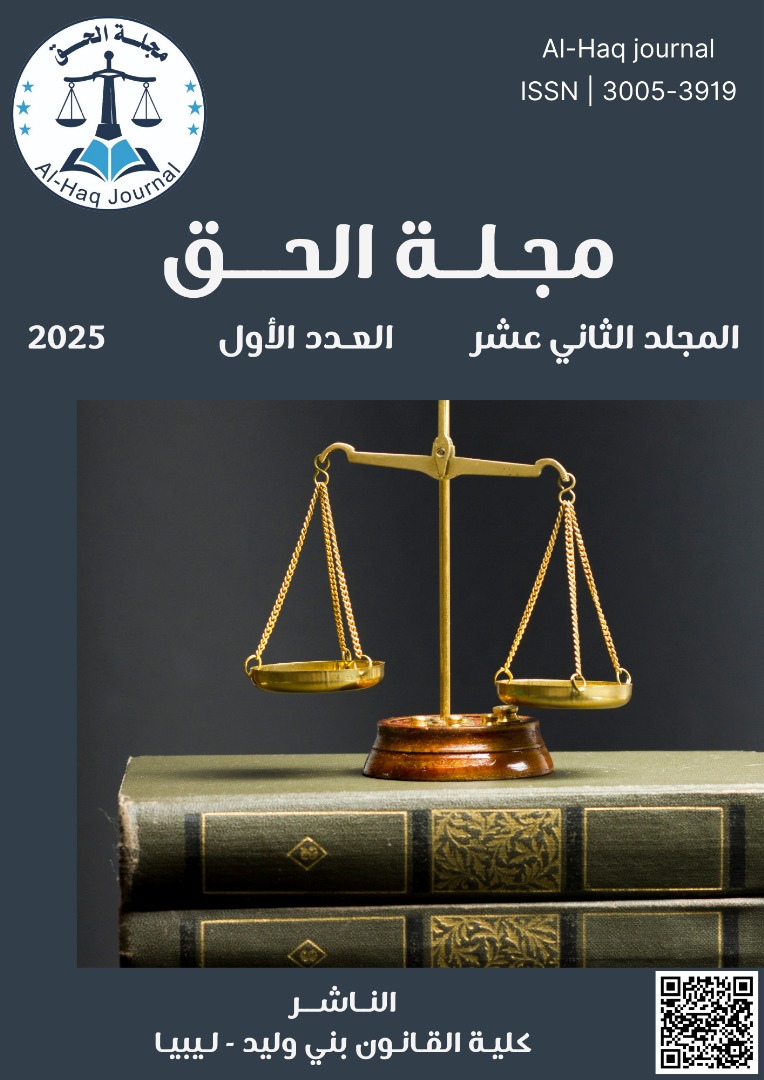Commentary on the Libyan Supreme Court's ruling regarding the extent to which a judicial police officer may interrogate the accused
DOI:
https://doi.org/10.58916/alhaq.v12i1.288Keywords:
Interrogation, Procedure, Judicial Officer, Accused, Supreme Court.Abstract
Interrogation is one of the investigative procedures taken against the accused by discussing in detail the evidence presented against him, whether for or against. Given the seriousness of this procedure, it may only be carried out by judicial authorities. However, the Supreme Court established a principle permitting the interrogation of the accused by a judicial police officer if he confesses during the evidence-gathering stage, and decided that it is not considered an interrogation. This requires investigation by identifying the legal basis on which the court relied in granting the judicial police officer the authority to carry out this procedure, what is the justification for doing so? What is the difference between taking this procedure before or after a confession by a non-judicial body? This is what we will address through a critical analytical study.
Downloads
References
References:
First: Books.
- Osama Mahfouz Al-Sayeh, Guarantees of the Accused during the Preliminary Investigation Stage in the Egyptian and Libyan Criminal Procedure Laws, Dar Al-Nahda Al-Arabiya, first edition, 2015.
- Al-Hadi Ali Bu Hamra, A Summary of the Libyan Criminal Procedure Law, Tripoli International Scientific Library, fourth edition, 2022.
- Awad Muhammad Awad, The Criminal Procedure Law in Libyan Legislation, University Publications House, 2008.
- Mahmoud Najib Hosni, Explanation of the Criminal Procedure Law According to the Latest Legislative Amendments, Dar Al-Nahda Al-Arabiya, fourth edition, 2011.
- Musa Masoud Arhuma, The Intermediary in Explaining the General Provisions of the Libyan Criminal Procedure Law, Publications of the International University of the Mediterranean - Benghazi, first edition, 2020.
Second: Research.
- Houria Muhammad Abdul Rahim, The Balance in the Rules Governing the Scope of Pretrial Detention, "A Critical Analytical Study of Pretrial Detention as a Preliminary Investigation Procedure," Journal of Legal Sciences, Volume 11, Issue 1, 2023.
Downloads
Published
Issue
Section
License

This work is licensed under a Creative Commons Attribution-NonCommercial 4.0 International License.









